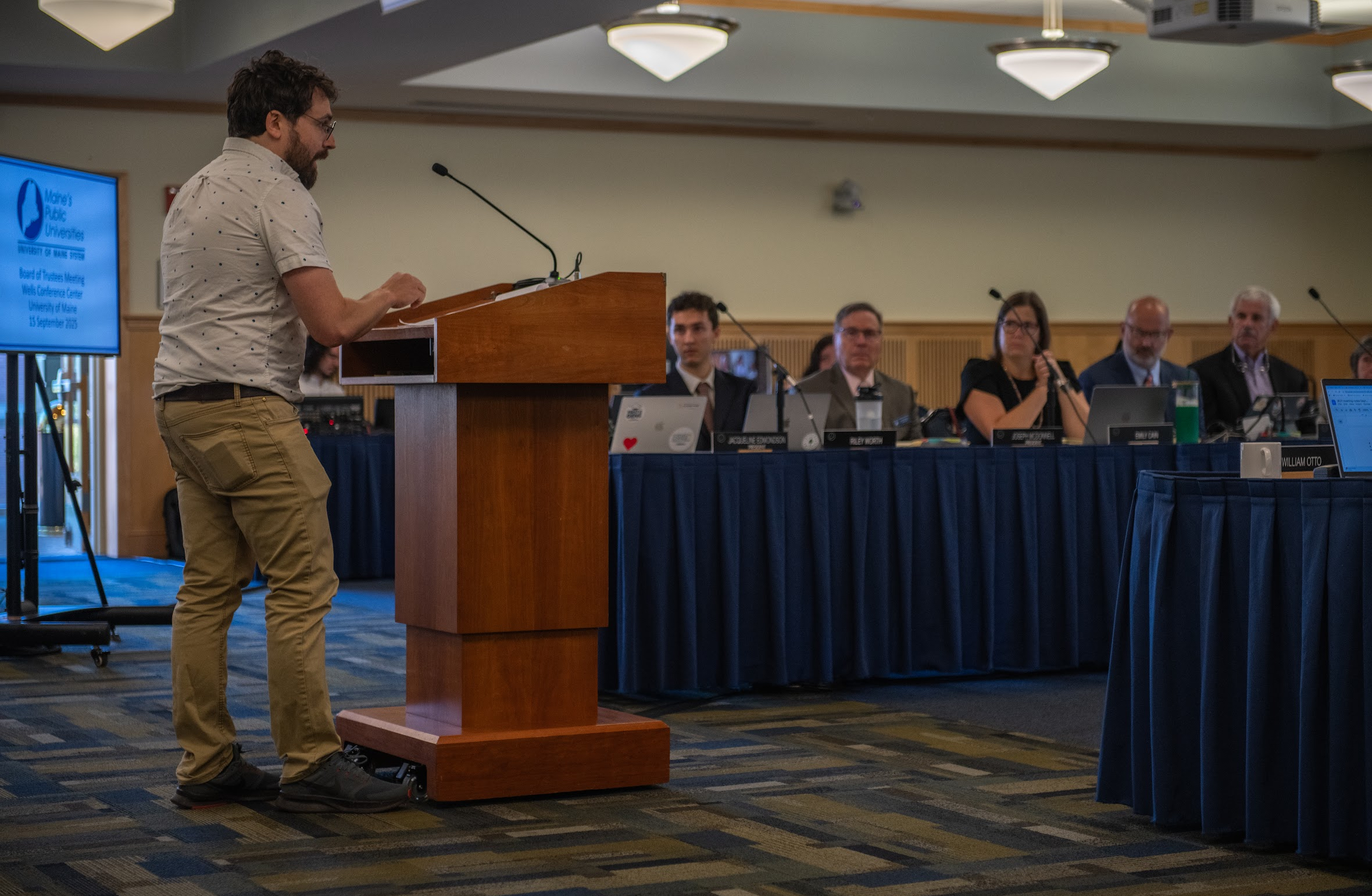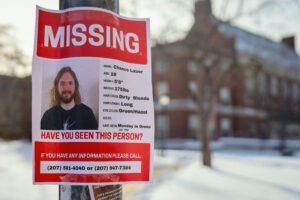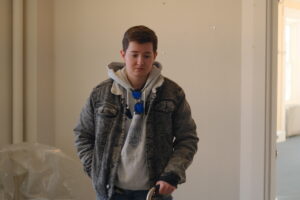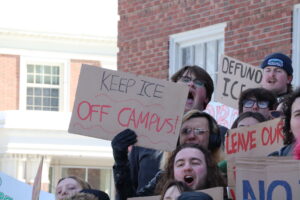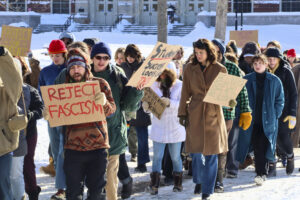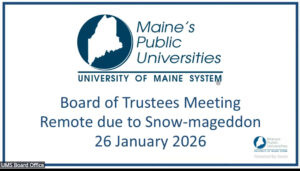The University of Maine System Board of Trustees (UMS BoT) met on Sept. 15 at the Wells Conference Center on campus in Orono. The BoT is a 16-member board, 15 of which are appointed by the Governor and confirmed by the Maine State Legislature. The board oversees academic programs, tuition, faculty tenure and system-wide budgets. The public comment session began shortly after 7:45 a.m. and concluded several hours later. The testimony focused heavily on student demands that UMS divest from companies connected to the ongoing war in Gaza, which was deemed a genocide by the United Nations on Sept. 16.
Before the testimony began, BoT chair Trish Riley welcomed attendees and acknowledged the board’s commitment to listening to student concerns, though she reminded participants that investment policies must balance fiduciary duties with broader institutional values.
Trish Riley also noted that with the amount of speakers — and to have the meeting run in a timely manner with everyone having their chance to speak — the time slot for each speaker would run a course of three minutes, being called to an end with a buzzer. She also said that though all comments to the BoT are taken very seriously, anonymous comments and letters do not hold the same weight as spoken testimony, as the BoT “just does not know where they come from.”
One of the first speakers was Megan Sauberlich, a fourth-year economics major at UMaine, who addressed the board as both a student and a member of Jewish Voices for Peace as well as Here4theKids, which is a student-led activist group dedicated to abolishing global systems of oppression. She urged the board to divest from corporations she described as “complicit in war crimes against the Palestinian people.”
Sauberlich recounted her first appearance before the BoT in August in April 2023, noting the dramatic rise in the death toll since then.
“In April 2023, 33,000 Palestinian civilians were dead. Today, the death toll has reached 64,700 people. However, after months of blocked humanitarian aid, the targeted destruction of sanitation facilities and hospitals has created impossible living conditions, the projected number of civilians is in fact much higher,” said Sauberlich. “A paper published by the Lancet states that ‘in recent conflicts, such indirect deaths range from three to 15 times the number of direct deaths.’ Applying a conservative estimate of four indirect deaths per one direct death, puts the death toll closer to 300,000 people.”
She also noted that while students have reached out to politicians and policymakers, it is equally important to address the institutions they belong to. She framed divestment as a moral duty, not a political stance.
Another speaker, Willow Cunningham, is an alumnus of the graduate and undergraduate computer engineering programs at UMaine, who echoed concerns of the first speaker in more passionate terms.
“Now, for the trustees and presidents assembled here, you are all human beings, and many of you have probably seen what is going on in Palestine and what is being made possible via our university’s investments,” said Cunningham.
They characterized the investments as “supporting an active genocide, worse than we have ever seen.” At one point, Cunningham paused to call out the apparent lack of attention from some board members.
“I see many of you typing away on your laptops as my colleagues and I are speaking about a very serious issue,” said Cunningham.
Cunningham argued that the trustees’ legal obligations were obstructing their moral ones, adding that “these choices that you make are active and they will be remembered.”
Both speakers underscored that students and alumni would continue advocating for divestment regardless of the BoT’s immediate response. They reminded the trustees that future generations of students would carry on the same calls for accountability and ethical responsibility.
Students repeatedly said that divestment was not just a financial matter, but a question of whether the university’s actions reflect its stated values. They pointed to the responsibility of public universities to serve as both centers of education and examples of social accountability. Some warned that failing to act would not only have consequences for Palestinians abroad but could also distance current and future students who feel their concerns are being overlooked.
The UMS BoT live streams their meetings and posts them at a later date for all to view on their YouTube Channel. Those interested in watching public commentary and meeting proceedings can view all board meetings on their channel here.
